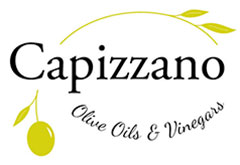“Yale’s Olive Oil and Health symposium drew a deeply invested group to New Haven this month—chefs, growers, importers, scientists, associations of producers, entrepreneurs and business people—to celebrate this amazing fruit juice and begin mapping out a new olive institute at the Yale School of Public Health.
Olive oil is the cornerstone of Mediterranean nutrition and speaker after speaker cited its vital role in better health outcomes throughout the region. Athanasios Panagiotopoulos, the mayor of Delphi, Greece, home to the Delphi Grove, a UNESCO world heritage site, was among the international attendees.
“There is no greater crisis in public health today than diet, diabetes and cardiovascular diseases,” Sten Vermund, dean of the Yale School of Public Health, told the gathering in Winslow Auditorium in his opening remarks for the two-day event that begin on October 3.
An olive oil institute at the Yale School of Public Health would include research in chemistry, and metabolomics to develop assays and datasets to enhance further health research. “We are extremely excited about the interest from around the world in participating in an interdisciplinary and multidisciplinary institute that will fill such an important void, said Professor Vasilis Vasiliou, chair of the YSPH’s Department of Environmental and Health Sciences.
For decades Americans have been told to reduce calories and cut fat, even healthy fat like olive oil. “We are paying a hefty price for that,” said Rafi Taherian, associate vice president of Yale Hospitality. Over the last decade, he has spearheaded a shift toward Mediterranean-style nutrition—rich in vegetables, seafood, legumes and extra virgin olive oil (EVOO), among other staples—in the university dining halls, increasing the consumption of produce by over 40 percent.
The symposium was organized by Tassos C. Kyriakides, an olive oil sommelier and associate research scientist in biostatistics at the Yale School of Public Health and director of the VA West Haven Cooperative Studies Program coordinating center, “It is time to bring together people from all the olive oil sectors to break down silos, open up the olive groves and find ways to support and enhance their work with this amazing fruit and inform future research directions,” he said.
Health benefits
Olive oils that are high in oleocanthals have high profiles for bitter taste receptors and have a peppery affect at the back of the throat. This pungency is associated with many health benefits—a reduced risk for cancer, Alzheimer’s and other neurodegenerative diseases and added protection against viruses, said Catherine Peyrot des Gachons of the Monell Chemical Senses Center in Philadelphia.
In addition to prevention of neurodegenerative diseases, Amal Kaddoumi, a professor at the Harrison School of Pharmacy at Auburn University in Alabama, has found that EVOO increases the activity of the drug donepezil that is used to treat dementia.
Mary Flynn, an associate professor at the Miriam Hospital and Brown University in Rhode Island, has studied the effects of a plant-based olive oil diet since the 1980s. Albeit small in sample size, numerous comparative studies among cancer patients consistently show better weight loss compared to National Cancer Institute diet plans, and when the patients are given the opportunity to self-select which diet to follow for the final period of the study they largely choose the olive oil diet. Her data reflect improved weight, insulin, blood pressure and triglyceride levels.
By shifting to more plant-based meals on this diet, Flynn also finds that the money saved on groceries ($14.36 per week) not only reduces food insecurity, but also results in weight loss and reduced blood glucose. “Most Americans eat too much protein and that turns to fat,” said Flynn. With the decrease in fasting blood glucose, people don’t get hungry.”
It is time to bring together people from all the olive oil sectors.”
Tassos C. Kyriakides
Among the natural chemicals that make EVOO such a super food are oleocanthal, a phenolic compound, and elenolide which is associated with lowering hypertension. Exploring the line between food and medicine, Propopis Magiatis, associate professor at the University of Athens, is researching efficacy of medical foods, or nutraceuticals, supplements and drugs—a rapidly growing sector.
“Consumer education remains important in traditional olive oil producing countries, such as Greece,” said Maria Kapsokefalou, professor of human nutrition at the Agricultural University of Athens. Consumption of olive oil has dropped 50 percent in Crete since 1960 as the country has shifted from an agricultural to a service economy. Through genomic research, Kapsokefalou’s group is identifying specific healthy properties in cultivars to link quality with the genome.”
Yale school of Public Health Article: October 10, 2018
